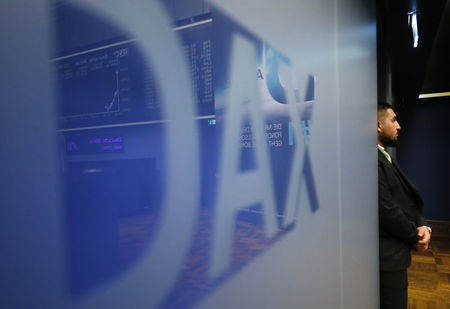
Investing.com – European stock markets traded in a mixed fashion Monday, starting the new week on a subdued note with the focus remaining on the future path of interest rates as well as the third-quarter earnings season.
At 03:10 ET (07:10 GMT), the in Germany traded 0.2% lower, the in France fell 0.2%, while the in the U.K. climbed 0.2%.
German producer prices fall
The cut interest rates last week, the central bank’s first back-to-back rate cut since 2011 as regional inflation risks are seen to be easing faster than anticipated.
fell more than expected in September, according to data released earlier Monday, declining 1.4% year on year, the 15th decline in a row in this key inflation indicator.
In Asia, the People’s Bank of China cut its benchmark by a quarter point earlier Monday, as part of the country’s steady rollout of stimulus measures.
UBS to sell Swisscard stake
In the corporate sector, Swiss banking giant UBS (SIX:) will sell its 50% holding in credit card provider Swisscard to its joint venture partner American Express (NYSE:), while Norway’s largest bank DnB (OL:) has agreed to buy Swedish investment bank and asset manager Carnegie from private equity firm Altor and minority owners.
French pharmaceutical company Sanofi (NASDAQ:) said it had entered exclusive talks for the sale of a 50% controlling stake in its consumer health business Opella to U.S. private equity firm Clayton Dubilier & Rice.
Crude stabilizes after losses
Oil prices edged higher Monday, stabilizing after the previous week’s sharp losses on worries about global demand growth, particularly from China, the world’s top oil importer.
By 03:10 ET, the contract climbed 0.7% to $73.59 per barrel, while futures (WTI) traded 0.9% higher at $69.31 per barrel.
Brent had settled down more than 7% lower last week, while WTI lost around 8% after data showed that China’s economy grew at the slowest pace since early 2023 in the third quarter.
Sentiment was lifted to a degree Monday after the Chinese central bank cut benchmark lending rates, in an attempt to stimulate the second largest economy in the world.
The tensions in the Middle East remain in focus, as Israel continues its campaigns against both Hamas and Hezbollah, while also likely preparing to retaliate against Iran for an early-October strike.